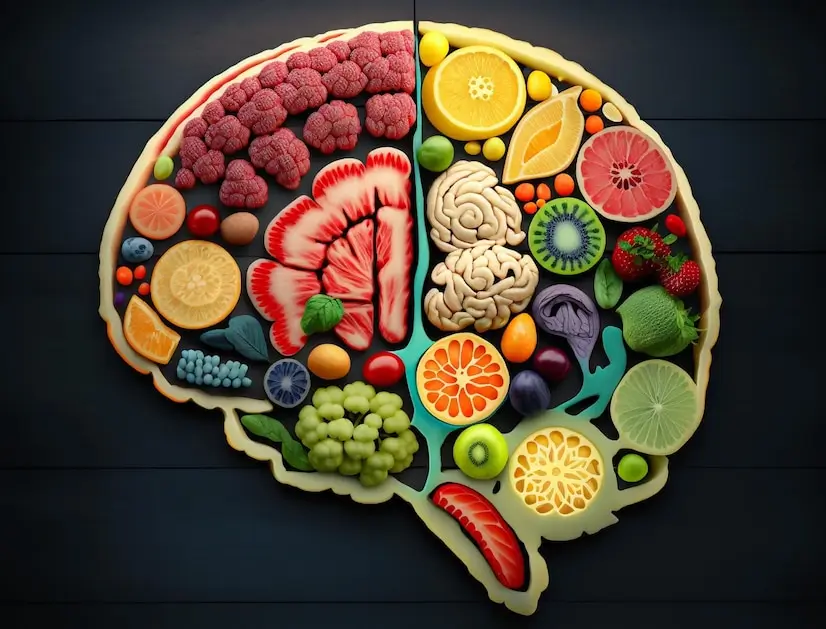
Table of Contents
Unlocking Brains Full Potential: A Comprehensive Guide To Nootropic Diet
The word “Nootropics” refers to different compounds that can improve memory, imagination, attention, as well as intellectual capacities. In this Article, We will investigate what is termed a ‘Nootropic Diet’, that is, which foods and nutrients can contribute to enhancing cognitive performance and promoting the brain’s well-being.
Given the modern world in which mental alertness and intellectual strength are extremely regarded, most individuals are always searching for measures for Optimizing Brain Health with a Nootropic Diet. A “diet” for better thought is considered a comprehensive method of enhancement of mental health via food intake.
Understanding Nootropics
For example, nootropic is a substance intended on improving cognitive functions but with minimal or no side effects. These compounds may be natural or synthesized based on the ability to induce neuroplasticity, increase neurotransmitters, and improve cerebral circulation.
Modafinil and racetams are typical synthesis nootropic agents for diseases such as narcolepsy and cognitive decline. Nevertheless, natural nootropics are the only concern in this case. They include common foodstuffs found from our kitchens.
Essential Nutrients for Brain Health
The basic ingredients for Nootropic Diet are crucial in providing ideal brain functionality. Here are some key nutrients and the foods that contain them:
- Omega-3 Fatty Acids: These are very important fats necessary for the brain. They include fatty fish such as salmon, mackerel and walnuts. There is evidence pointing out that omega 3s may actually enhance cognitive performance and memory.
- Antioxidants: Rich in antioxidants sources like blueberries, dark chocolate, and green tea foods can alleviate the brain from the effects of oxidative stress/inflammation thus protecting it from cognitive decline.
- Choline: Choline occurs in eggs and lean meat being a source of acetylcholine neurotransmitter important for memory and learning.
- Vitamin E: Vitamin E can be obtained from nuts, seeds and leafy greens that might assist to counteract age-associated cognitive deterioration.
- B-vitamins: B-vitamins are contained in whole grains, leafy greens and beans. They play a role in the production and utilization of brain’s chemicals and energy metabolism.
- Curcumin: Curcumin, the active compound in turmeric has anti-inflammatory and antioxidant properties that may help promote cognitive activity.
- Caffeine: Consumed in moderate amount, caffeine is located in coffee and tea helps a person become more alert and focused.
- Phosphatidylserine: Found in trace amounts in soy and organ meats, phosphatidylserine supports the functionality of the cells in the brain.
Building Your Nootropic Diet
A Nootropic means comprising of various of the foods listed above, and that is what creating a Nootropic Diet entails. Here are some tips to get started:
- Balanced Diet: Ensure an all-around diet with different types of fruits, vegetables, whole grain foods, lean meats and some good fat. For this reason, the diet has to be diversified in order to include various nutrients.
- Hydration: It is important to stay hydrated to maintain good working of brain. Ensure that you drink lots of water all through the day.
- Limit Processed Foods: Cognitive health is not always promoted by processed foods which are usually packed with artificial additives or preservatives. Minimize their consumption.
- Mindful Eating: Limit consumption of unhealthy snacks to smaller portions while being conscious of one’s food intake in order to avoid cognitive fog.
- Consistency: It may also take time for someone to notice the benefits of a Nootropic Diet. Stick to your recommended dietary options and let your body and brain adjust accordingly.
Conclusion
A nootropic diet contains essential vitamins and natural compounds that serve for optimal cognitive functioning. However, nobody should be made a genius by just eating.
Proper diet is only one part of healthy lifestyles which comprise sufficient sleep, exercising as well as mental stimulation.
Consulting a healthcare professional or a registered dietitian is necessary if you want to alter what you eat to increase mental functions. Note always that a good diet is also part of holistic lifestyle and cognitive health.